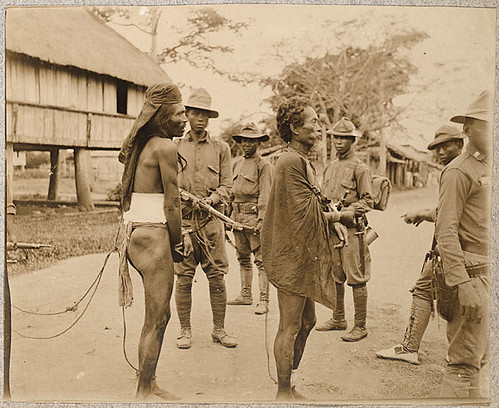
During the U.S. war in the Philippines between 1899 and 1904 (which grew out of the Spanish-American War that had erupted in 1898), ordinary American soldiers shared the nationalist zeal of their commanders and pursued the Filipino “enemy” with brutality and sometimes outright lawlessness. Racism, which flourished in the United States in this period, led American soldiers to repeatedly assert their desire “to get at the niggers.” An anti-imperialist movement, which rejected annexation by the United States of former Spanish colonies like Puerto Rico and the Philippines, attempted to build opposition at home to the increasingly brutal war.

Although few soldiers joined the anti-imperialist cause, their statements did sometimes provide ammunition for the opponents of annexation and war. In 1899, the Anti-Imperialist League published a pamphlet of Soldiers Letters, with the provocative subtitle: “Being Materials for a History of a War of Criminal Aggression.”

Historian Jim Zwick notes that the publication “was immediately controversial. Supporters of the war discounted the accounts of atrocities as the boasting of soldiers wanting to impress their friends and families at home or, because the identities of some of the writers were withheld from publication, as outright fabrications.” But the brutal portrayal of the war that is found in these letters (excerpts from twenty-seven of them are included here) is supported in other accounts.

Spanish American War the Philippines and Filipino Genocide1
Spanish American War the Philippines and Filipino Genocide 2
Spanish American War the Philippines and Filipino Genocide 3
Spanish American War the Philippines and Filipino Genocide 4
Spanish American War the Philippines and Filipino Genocide 5

Spanish American War the Philippines and Filipino Genocide1
Spanish American War the Philippines and Filipino Genocide 2
Spanish American War the Philippines and Filipino Genocide 3
Spanish American War the Philippines and Filipino Genocide 4
Spanish American War the Philippines and Filipino Genocide 5
I'm typically to blogging and i actually appreciate your content. The article has really peaks my interest.federal land records
ReplyDelete